Catholic Church

DERBY, Conn. — The Rev. Janusz Kukulka can’t say for sure that his parishioners are sinning more, but they sure are lining up at the new confessional booth to tell him about it.
For years, Kukulka, was content with absolving sins in a private room marked by an exit sign to the right of the altar St. Mary the Immaculate Conception Catholic Church.
But something happened during Lent this year. For the first time, Kukulka really noticed the two confessionals missing from the rear of his church. They’d been gone for four decades, ripped out during the 1970s to make room for air conditioning units during a renovation inspired by the Second Vatican Council.
They must have been a thing of beauty, Kukulka thought. He imagined their dark oak paneled doors and arched moldings to match the Gothic architecture of the church designed by renowned 19th-century architect Patrick Keely.
Their absence was striking, especially when the Archdiocese of Hartford had asked parishes to extend their confession hours during Lent, part of a public relations campaign to get Catholics to return to the sacrament of reconciliation.
So, one Sunday Kukulka announced his desire to the congregation. “I told them I wanted a visible confessional,” he said.
He got one within a week.
The Ecclesial Network for the Amazon, a Catholic church network representing 12 Latin American countries, met recently in Puyo, Pastaza, Ecuador, challenging unrestrained market forces that are decimating the Amazonian ecosystem. The Network has been established to provide on-the-ground facts about Amazonia's environment, indigenous communities, and to strengthen the church in the region. Agenzia Fides reports:
"Many people still think that there is an unlimited amount of energy and resources that can be used, and that the negative effects of the wild manipulation of nature can be easily absorbed. But this is totally false." Such attitudes, Catholic Bishop Julio Parrilla continued, "are not rooted in science or technology, but in a technocratic ideology that serves the interests of the market." The Bishop concluded by reiterating "the influence of secularization, because when man turns away from God, he falls into the temptation of thinking that everything is permitted, in order to meet one’s immediate needs and desires."
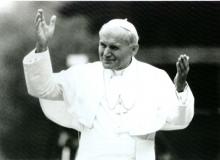
Reports this week that the late Pope John Paul II may be on the verge of sainthood after a second miracle was credited to his intercession aren’t a huge surprise: When he died eight years ago, crowds were already clamoring for his canonization, and Pope Benedict XVI quickly waived the usual five-year waiting period to get the process rolling.
But the news that Pope Francis, just six weeks on the job, has cleared the way for the long-stalled canonization of martyred Salvadoran Archbishop Oscar Romero is a stunner that sends another important signal about the new pope’s priorities.
“Sainthood is often as much about politics and image as anything else,” said the Rev. Harvey Egan, a Jesuit priest and professor emeritus of theology at Boston College.
“It’s not surprising to me that this present pope being from South America, having the same inclinations as Romero, would unblock the process and say ‘Push his cause through,’ and I think rightly so.”
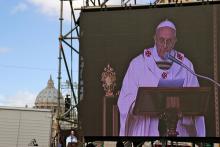
Vatican employees won’t receive the special bonus they are traditionally awarded when a new pope is elected, the Vatican confirmed on Thursday, under orders from Pope Francis to give extra money to charity instead.
“On account of the difficult situation of the general economy, it seemed neither possible nor opportune to burden Vatican institutions with a considerable unforeseen extraordinary expense,” the Vatican’s chief spokesman, the Rev. Federico Lombardi, said in an emailed statement.
In place of the employees’ bonus, Pope Francis ordered Vatican officials to make a donation to some “charitable organizations.”
The money will be drawn from the pontiff’s personal charity budget “as a sign of the church’s attention for the many people who are suffering” from the global economic slowdown, Lombardi said.
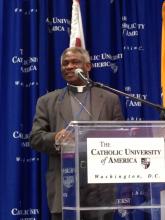
On April 11, 1963 Pope John XXIII published an encyclical some initially dismissed as naive and myopic, as too liberal and too lofty. But today, his "Pacem in Terris" is generally lauded as genius and prophetic – well ahead of its time on the issues of human rights, peace, and equality.
As Maryann Cusimano Love, a Catholic professor of international relations, notes, the same year “Pacem in Terris” was published, spelling out the theological mandate for political and social equality for all people, women in Spain were not allowed to open bank accounts, Nelson Mandela was standing trial for fighting apartheid, and Walter Ciszek was serving time in a Soviet gulag simply for being Catholic.
On Monday and Tuesday, the Catholic Peacebuilding Network hosted a two-day conference at the Catholic University of America, commemorating 50 years since the publication of "Pacem in Terris.”
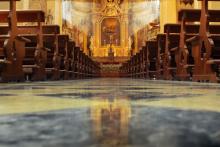
As the Senate takes up a heated debate over gun control and background checks, Catholic bishops have used the months since the Newtown school massacre to push gun control in email blasts and Senate Judiciary Committee testimony. But among the Catholic faithful, not everyone supports gun control measures.
Call them the NRA Catholics.

Wading into one of the most controversial fields of modern medicine, the Vatican is pushing adult stem cell research as ethical and scientifically more promising than embryonic stem cell research.
That’s despite assertions from many in the scientific community that that it’s important to pursue all types of stem cell research, including embryonic, to maximize chances of finding cures for diseases.
Harvesting embryonic stem cells requires the destruction of fertilized embryos — which are considered nascent human life in Catholic doctrine. Adult stem cells can be safely taken from adult human beings.
The Vatican started promoting adult stem cells in 2011, when its Pontifical Council for Culture launched a collaboration with U.S. bio-pharmaceutical company NeoStem.
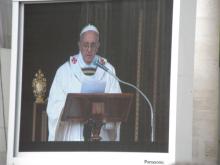
From the very first moment of his unexpected election as Pope Francis, Cardinal Jorge Bergoglio of Argentina has embraced a series of small departures from established tradition.
He took his papal name from a great nonconforming saint of the Middle Ages — and one that no other pope in the history of the Roman Catholic Church has taken. He then refused to stand on an elevated platform that would separate him from his “brother cardinals,” and asked the people of Rome to bless him rather than receive his blessing. He even insisted on returning to his hotel to settle his account (as though his credit were in any doubt).
Everyone who knew Bergoglio saw in him an unconventional and even unpredictable figure. He lived in Buenos Aires in a modest apartment rather than in the archbishop’s palace. He dispensed with a private limousine and took public transportation to work. He even cooked his own meals at home in his own kitchen.
Now, as pope, he has continued this pattern by ignoring long-settled traditions of what a pope should wear, where he should reside, and how he should conduct himself in public functions. Francis has chosen not wear the gold papal cross to which he is entitled, instead wearing the more simple cross he wore in Argentina. He also seems satisfied with normal men’s footwear, avoiding the elegant red loafers Pope Benedict normally wore in public.

Pope Francis has won widespread acclaim thus far in his nascent papacy with popular gestures like washing the feet of juveniles during Holy Week and refusing many papal perks. But now comes the hard part of his new job: reforming the Vatican.
The Roman Curia, as the central administration of the Catholic Church is known, has been riven by scandals and allegations of infighting and careerism, which helped undermine Pope Emeritus Benedict XVI’s reign and reportedly pushed him to resign.
The dysfunction was so bad that reforming the Curia became a rallying cry for many cardinals at the conclave that elected Francis. But will he deliver on the promise of reform?
Pope Francis on Wednesday said women play a “fundamental role” in the Catholic Church as those who are mostly responsible for passing on the faith from one generation to the next.
While the new pope stopped far short of calling for women’s ordination or giving women more decision-making power in the church, his remarks nonetheless signaled an openness to women that’s not often seen in the church hierarchy.
“In the church and in the journey of faith, women have had and still have a special role in opening doors to the Lord,” the Argentine pontiff said during his weekly audience in St. Peter’s Square.
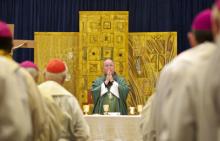
When New York Cardinal Timothy Dolan told national news programs on Easter Sunday that Catholic leaders need to do a better job of showing that their opposition to gay marriage is not “an attack on gay people,” the nation’s top Catholic bishop seemed to be signaling an important shift in tone, if not policies, that acknowledges two new realities.
One is the election of a new pope, Francis, who in less than a month has demonstrated a clear preference for engagement and inclusion (washing the feet of women and Muslim inmates at a Rome youth prison, for example) rather than the confrontation and political purism that often found favor under his predecessor, Benedict XVI.
The other is the ongoing shift in favor of same-sex marriage in the court of public opinion and — if recent arguments on Proposition 8 and the Defense of Marriage Act are any guide — perhaps soon in the U.S. Supreme Court.

COLUMBUS, Ohio — Thirteen state attorneys general are urging the federal government to broaden religious exemptions for private businesses under the White House’s contraception mandate, claiming the policy violates religious freedoms.
Put simply, the group believes any employer who says he or she objects to contraception should not have to provide contraceptive coverage.
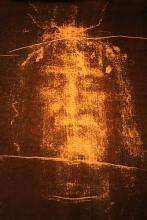
New scientific tests on the Shroud of Turin, which went on display Saturday in a special TV appearance introduced by the pope, date the cloth to ancient times, challenging earlier experiments that dated it only to the Middle Ages.
Pope Francis sent a special video message to the televised event in the Cathedral of Saint John the Baptist in Turin, Italy, which coincided with Holy Saturday, when Catholics mark the period between Christ’s crucifixion on Good Friday and his resurrection on Easter Sunday.
The Vatican, tiptoeing carefully, has never claimed that the 14-foot linen cloth was used to cover Christ after he was taken from the cross 2,000 years ago, as some believers claim.
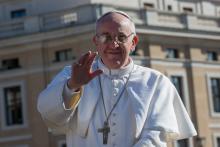
The Vatican on Friday dismissed criticism of Pope Francis’ decision to wash the feet of two women during a Maundy Thursday Mass at a Rome youth prison.
The move has come under fire from Catholic traditionalists who say that the rite is a re-enactment of Jesus washing the feet of the 12 apostles before his death, and thus should be limited only to men.
Traditionally, popes have washed the feet of 12 priests during a solemn Mass in Rome’s St. John Lateran Basilica.
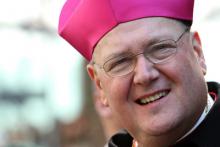
Cardinal Timothy Dolan, the top U.S. Catholic prelate, says the Roman Catholic Church has to make sure that its defense of traditional marriage is not reduced to an attack on gays and lesbians.
Dolan is president of the U.S. Conference of Catholic Bishops and last month was reputed to have gathered some votes in the Vatican conclave where Pope Francis was eventually elected.
He made his remarks on two morning talk shows on Easter Sunday, just days after the Supreme Court heard arguments in two same-sex marriage cases.
An effort by Boston College administrators to shut down a student-run program to distribute condoms and provide information on safe sex could end up in court, according to Boston media outlets.
School officials sent a letter this month threatening disciplinary action to students behind “Safe Sites,” the network of dorm rooms serving as outlets for condoms, lubricants and other material.
The students were told the effort conflicts with the “responsibility to protect the values and traditions of Boston College as a Jesuit, Catholic institution.”

In his first general audience since his election to the papacy, Pope Francis on Wednesday urged Catholics to leave their comfort zone to search for “lost sheep.”
As the Catholic Church prepares for Easter and celebrates the rites of Holy Week, Francis told around 20,000 people in St. Peter’s Square to avoid “a tired and routine way of living the faith,” and resist “the temptation to withdraw into pre-established patterns that end up closing our horizon” to God.
“We must not be content to remain in the enclosure of the 99 sheep; we have to step outside, to search for the lost sheep,” he added, referring to a parable of Jesus.

Even as a non-Catholic, I was filled with hope when an Argentine cardinal said to be passionate about serving the poor stepped onto the balcony overlooking St. Peter’s Square as Pope Francis.
By taking the name of a church reformer, the former Cardinal Jorge Bergoglio promised a better day for an ossified institution whose people beg for hope while hierarchs defend medieval power and pomp.
By standing in silence and bowing his head for the crowd’s blessing, Francis showed a humility that could inspire believers grown weary of Roman arrogance. In greeting the crowd, the new pope showed a common touch that could repurpose a global movement from being lost in scandal and self-serving.
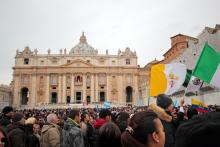
Editor's Note: Pope Francis delivered the following homily at his inaugural Mass on Tuesday, emphasizing the need to protect the poor and the environment.
Dear Brothers and Sisters,
I thank the Lord that I can celebrate this Holy Mass for the inauguration of my Petrine ministry on the solemnity of Saint Joseph, the spouse of the Virgin Mary and the patron of the universal Church. It is a significant coincidence, and it is also the name-day of my venerable predecessor: we are close to him with our prayers, full of affection and gratitude.
I offer a warm greeting to my brother cardinals and bishops, the priests, deacons, men and women religious, and all the lay faithful. I thank the representatives of the other Churches and ecclesial Communities, as well as the representatives of the Jewish community and the other religious communities, for their presence. My cordial greetings go to the Heads of State and Government, the members of the official Delegations from many countries throughout the world, and the Diplomatic Corps.
In the Gospel we heard that "Joseph did as the angel of the Lord commanded him and took Mary as his wife" (Mt 1:24). These words already point to the mission which God entrusts to Joseph: he is to be the custos, the protector. The protector of whom? Of Mary and Jesus; but this protection is then extended to the Church, as Blessed John Paul II pointed out: "Just as Saint Joseph took loving care of Mary and gladly dedicated himself to Jesus Christ’s upbringing, he likewise watches over and protects Christ’s Mystical Body, the Church, of which the Virgin Mary is the exemplar and model" (Redemptoris Custos, 1).
How does Joseph exercise his role as protector? Discreetly, humbly and silently, but with an unfailing presence and utter fidelity, even when he finds it hard to understand. From the time of his betrothal to Mary until the finding of the twelve-year-old Jesus in the Temple of Jerusalem, he is there at every moment with loving care. As the spouse of Mary, he is at her side in good times and bad, on the journey to Bethlehem for the census and in the anxious and joyful hours when she gave birth; amid the drama of the flight into Egypt and during the frantic search for their child in the Temple; and later in the day-to-day life of the home of Nazareth, in the workshop where he taught his trade to Jesus.
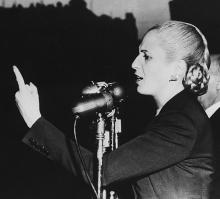
In 1974, when the Rev. Jorge Bergoglio was the top Jesuit in his native Argentina, a former nightclub dancer named Isabel Peron came to head the nation – an accidental and weak president.
Isabel Peron served less than two years in office before a right-wing military coup placed her under house arrest, and launched a seven-year campaign of torture and killings of tens of thousands of trade unionists and other leftists: Argentina’s Dirty War.